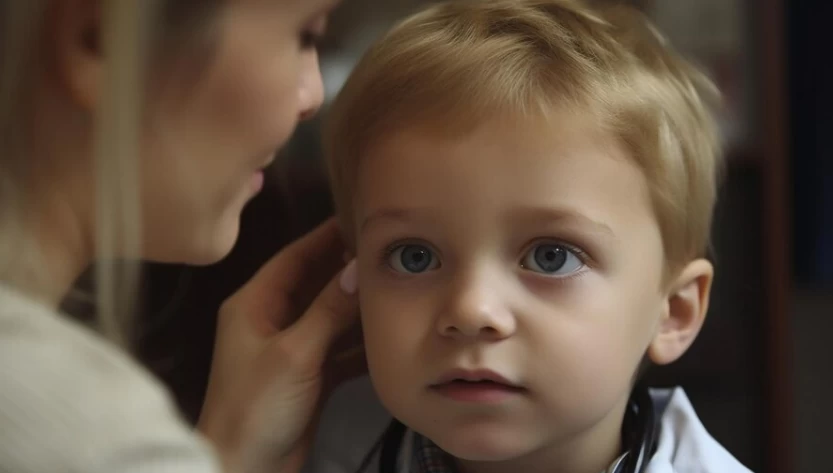
The Effects of Hearing Problems on School Children's Academic Performance
- The Effects of Hearing Problems on School Children's Academic Performance
- Types and Prevalence of Hearing Problems
- Effects of Hearing Problems on Academic Performance
- Strategies for Coping with Hearing Problems
- Have You Had Your Child's Hearing Tested Before Starting School?
Hearing is a vital sensory organ for human communication, accessing information, and perceiving the environment. Especially for school-age children, hearing has a significant impact on learning and academic success. Hearing problems can negatively affect children's social, emotional, and academic development. This article examines the effects of hearing problems on school children's academic performance and discusses strategies to mitigate these effects.
Types and Prevalence of Hearing Problems
Hearing problems can manifest in various forms due to different underlying causes. These include hearing loss, auditory disparities, auditory disorders, and hearing impairments. Hearing problems can occur in children either from birth or develop later in life. According to the World Health Organization, approximately 466 million people worldwide struggle with hearing problems, making it a significant health issue, especially for children.
Effects of Hearing Problems on Academic Performance
- Language Development and Speech Skills: Hearing problems can adversely affect children's language development and speech skills. Children with hearing loss may struggle with correctly acquiring language and developing their speech, which can impact their academic achievements.
- Reading and Writing Skills: Hearing problems can create additional challenges for children in developing reading and writing skills. Hearing loss may hinder vocabulary development and reading comprehension abilities.
- Social and Emotional Development: Hearing problems can also affect children's social and emotional development. Children with hearing loss may face difficulties in forming relationships with peers and teachers due to communication barriers. This can negatively impact their self-esteem and, subsequently, their academic performance.

Strategies for Coping with Hearing Problems
- Early Diagnosis and Intervention: Hearing problems can be effectively managed with early diagnosis and intervention. Newborn hearing screening is crucial for early detection. Early diagnosis and access to necessary treatments or hearing devices can help children cope better with hearing problems.
- Special Education and Support Services: Providing special education and support services for children with hearing problems can enhance their academic success. Resources such as hearing aids, cochlear implants, and special education programs are available for hearing-impaired children.
- Family Support: Families play a crucial role in supporting children with hearing problems. Families should be sensitive to their children's educational and emotional needs. Developing strategies to cope with hearing problems and enhancing communication within the family can be beneficial.
Have You Had Your Child's Hearing Tested Before Starting School?
As children grow, we become more concerned about their health and development. When they reach school age, a series of health check-ups and tests become necessary. These often include eye exams, dental check-ups, and vaccinations. However, hearing health is also crucial for children and is often an overlooked aspect of their well-being.
Hearing is a fundamental sense for children to explore the world, learn, and communicate. Hearing problems in school-aged children can have a significant impact on their learning processes and academic achievements. Difficulty in hearing teachers and classmates can severely limit a child's ability to understand and participate in lessons.
So, have you had your child's hearing test before they start school? Hearing tests are used to assess a child's hearing health and to identify hearing problems early. These tests determine the type and severity of hearing loss. Hearing problems can affect children from birth or develop later in life, so it's essential to have hearing tests conducted at any age.
Hearing tests are typically simple and painless. Hearing health professionals assess a child's hearing by playing different tones and monitoring their responses. If a child has hearing problems, the results of these tests can guide Ear, Nose, and Throat specialists in creating a treatment plan, which may include hearing aids or other interventions.
Early diagnosis can help manage hearing problems more effectively and enhance your child's academic success. When hearing problems are left undiagnosed and untreated, children may experience delays in language development and struggle academically. Additionally, hearing-impaired children may face social isolation in the classroom.
Remember that it's crucial not to overlook your child's hearing health. Having a hearing test before starting school is an essential step in ensuring your child's health and academic success. Hearing problems can be managed effectively when identified early, leading to a brighter and healthier future for your child.

Dr. Selami YAVUZ
Ear, Nose, and Throat Specialist





